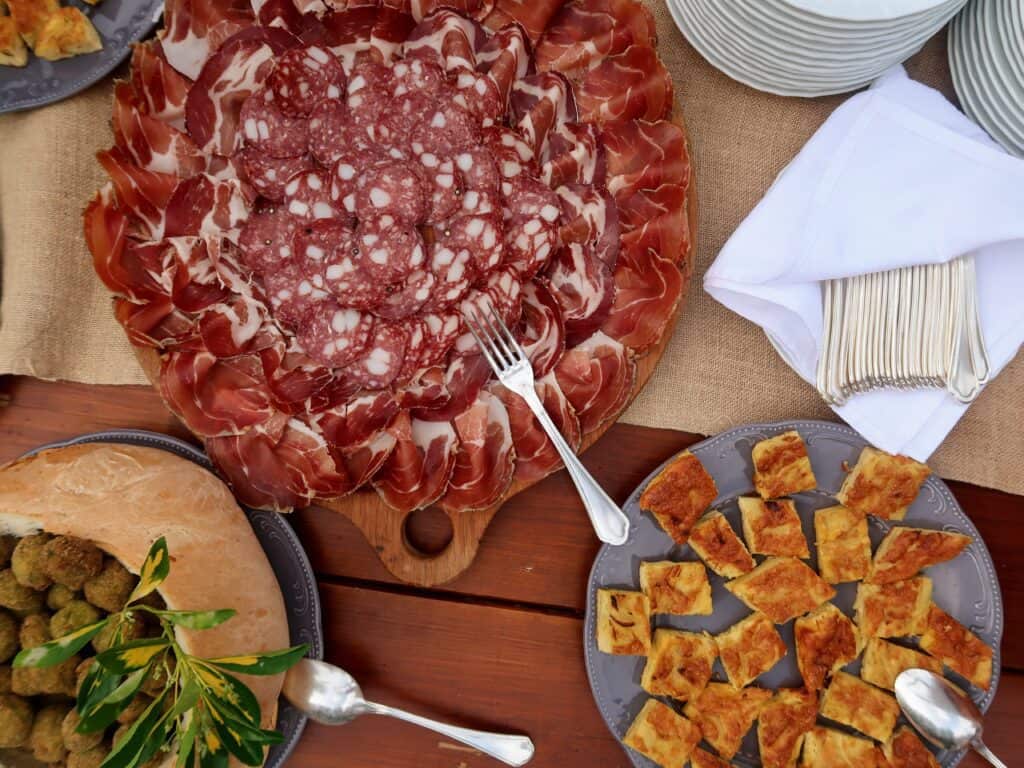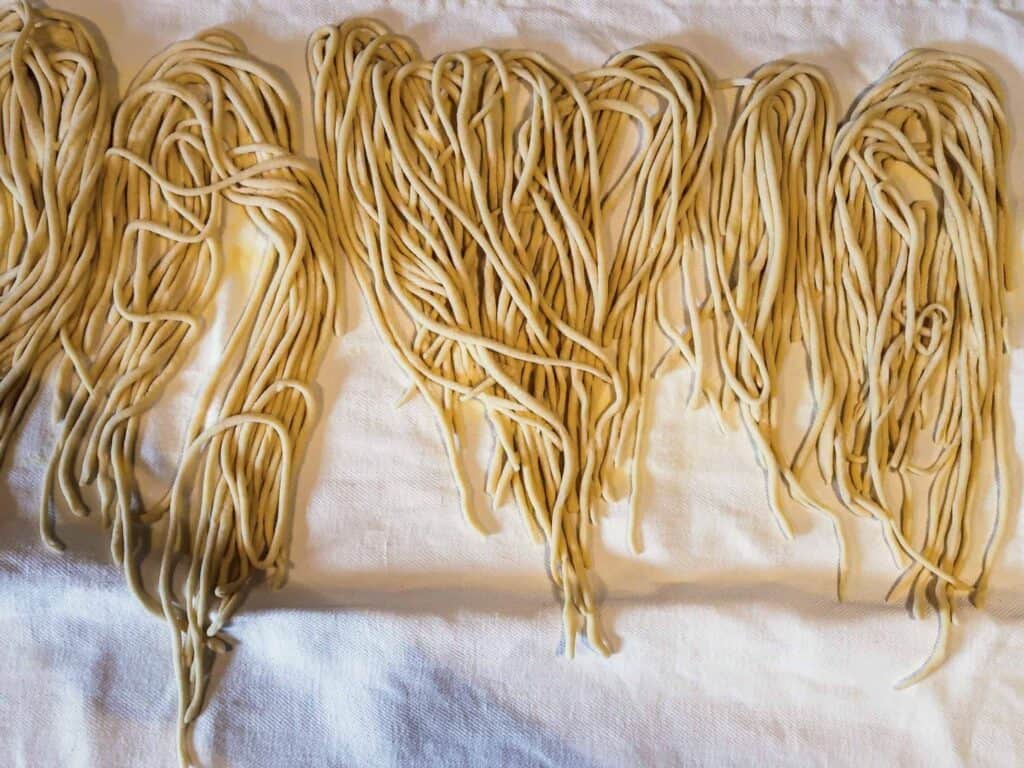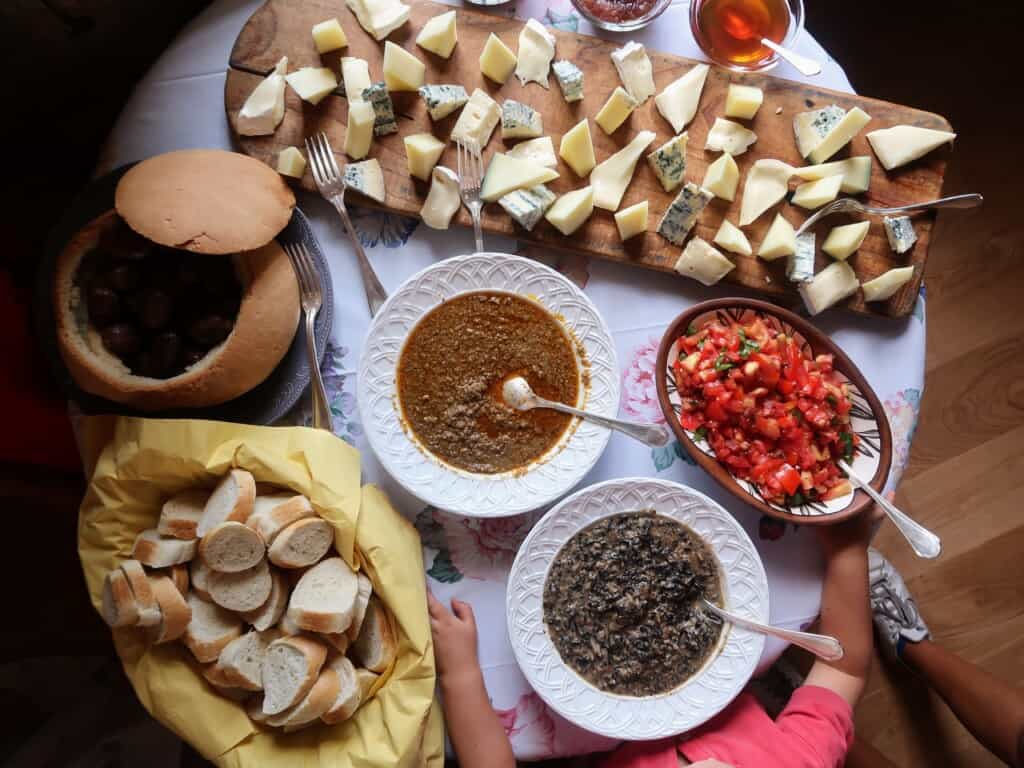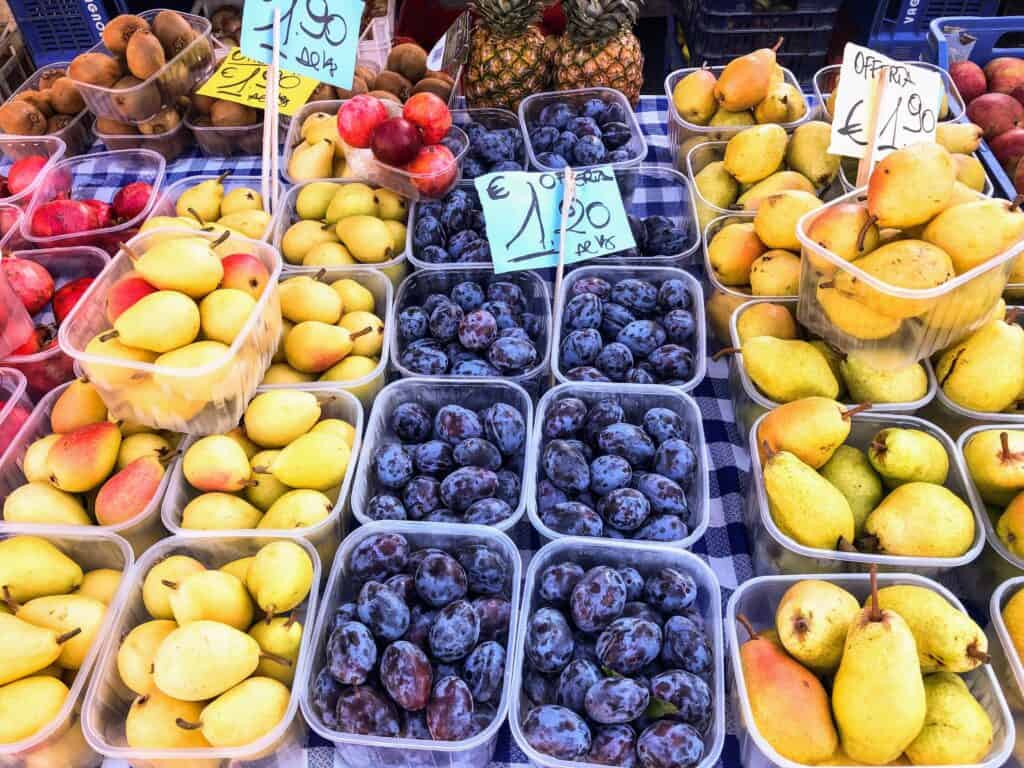Last updated on November 10th, 2023
It’s no surprise that Italy has a ton of proverbs about food, phrases involving food and also, grand gestures and vocabulary to describe what they are eating. But have you ever wondered if Italians actually use all these phrases and sayings?
The truth is, it’s complicated – Italy is very regional. But, there are a handful of phrases that Italians use about food/include food across all the regions (and there are some sayings that are very cliché but maybe in the old country you will hear them spoken by the nonne, grandmothers).
After being in Italy for so long, I have finally grasped what you can say, when it makes sense, and what to avoid saying. For example, using some of the classic sayings that perhaps you have heard in movies are a dead giveaway that you are a tourist.
In this article I will explain all the best Italian food phrases that you should use in Italy and that you might hear on your trip.
Jump to Section
1. Buono!
Also buona/buoni/buone
This is the most important word you should learn to describe food that tastes good. You should use it to describe excellent foods, making sure to adjust based on if the food is masculine (buono), feminine singular (buona), masculine plural (buoni) or feminine plural (buone). To indicate that you really, really like something, add -issimo/a/i/e to the word such as buonissima!
Questi biscotti sono buoni. Come si chiamano?
These cookies are good. What are they called?
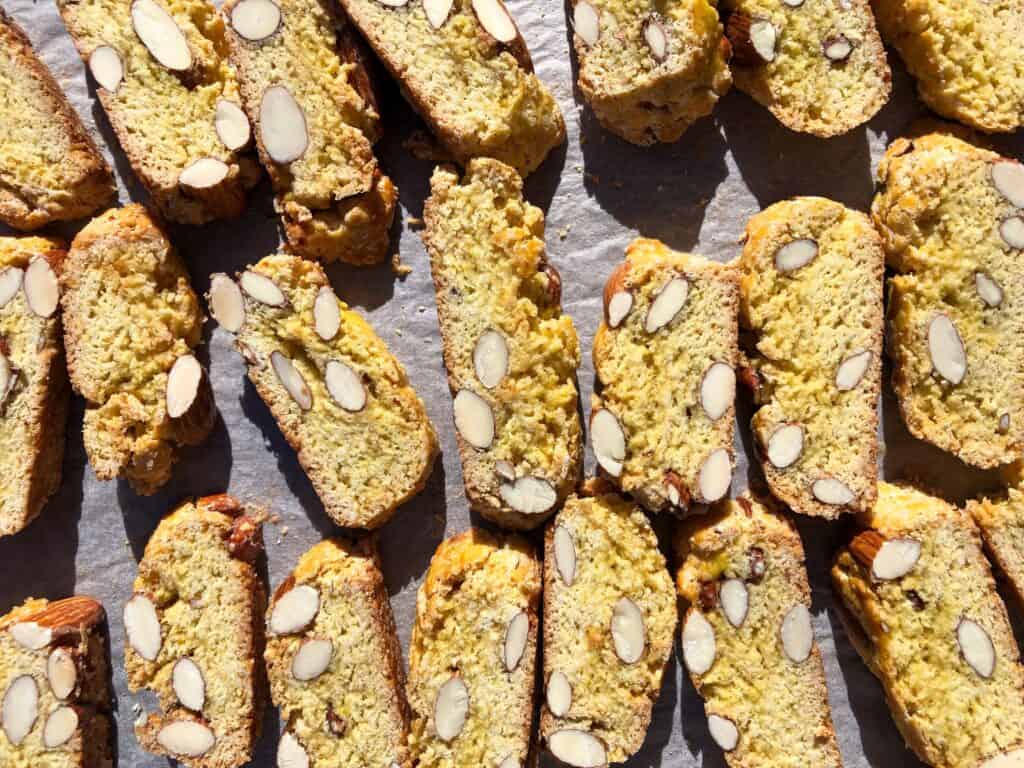
2. Che bontà!
Meaning “how good!”, you should use this phrase to share your enthusiasm for a dish. Use this for any food, masculine, feminine, plural or singular, no matter what you are eating.
Che bontà! Potrei mangiare questo spezzatino tutti i giorni!
How delicious! I could eat this stew everyday!
3. Squisito
Also squisita/squisiti/squisite
Meaning “excellent” or “exquisite” this is the best term to use if you are really blown away by a dish or food that someone has prepared for you. It’s most commonly used in exclamation right after trying something for the first time.
È squisito questo pollo. Non l’ho mai visto preparato così. Posso chiedere la ricetta?
This chicken is amazing. I have never had it prepared this way before. Can I ask you for the recipe?
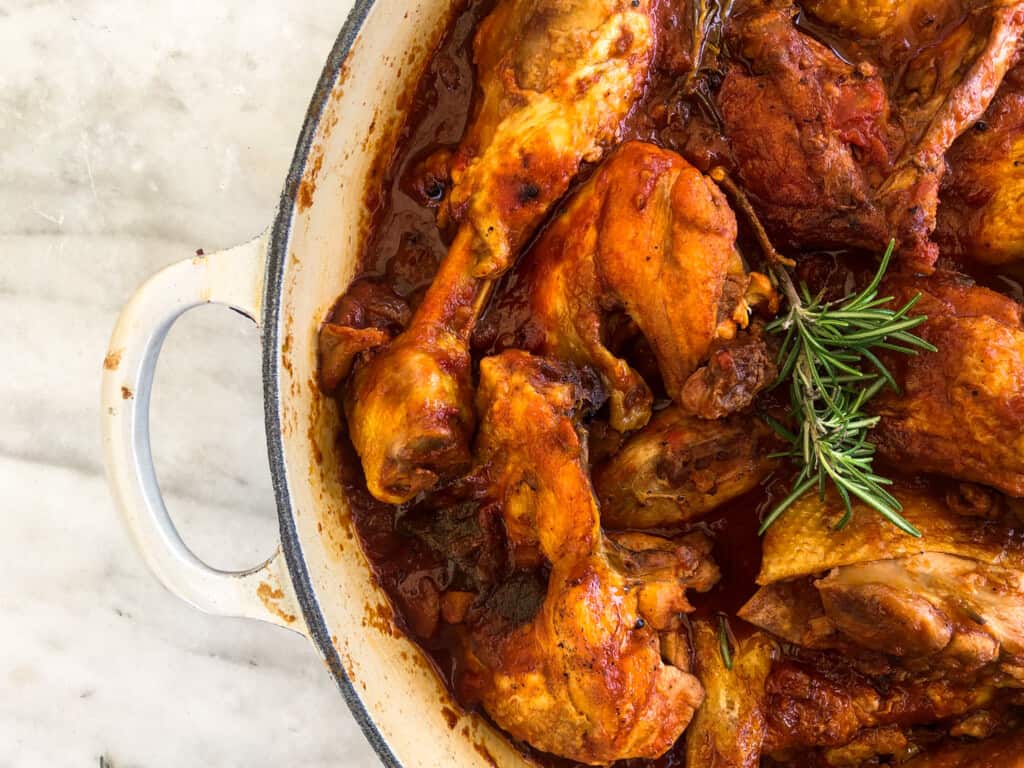
4. Buon Appetito
You will hear this around the table quite frequently from friends, family and in restaurants right before you start your meal as a way to say “enjoy your meal”. Use it right after the food is served as people are about to dig in.
Buon Appetito a tutti!
Enjoy your meal everybody!
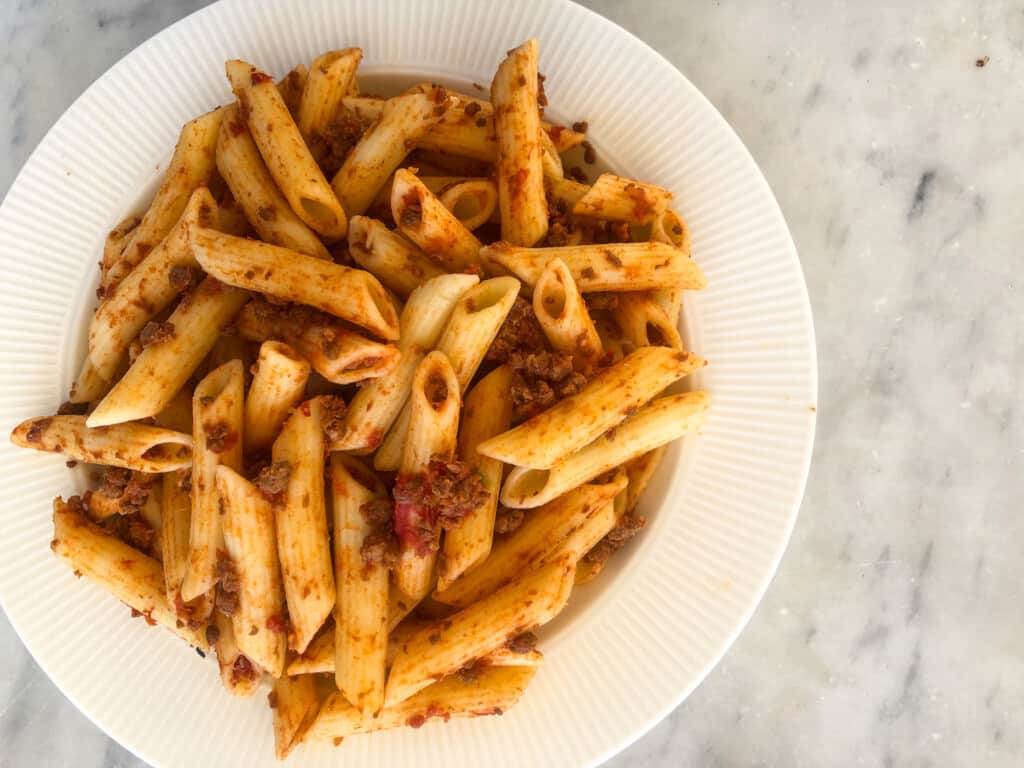
5. È Delizioso
Also È Deliziosa/Sono deliziosi/Sono deliziose
Another term to describe how delicious the food is, although it’s more commonly used to describe how wonderful a person is, Quella signora era deliziosa! (That woman was charming). To read more about how to say delicious in Italian, read Delicious In Italian – Italian Pronunciation + Audio.
Wow, è delizioso questo gelato. Da dove viene?
(Wow, this ice cream is delicious. Where did you get it?)
6. Ottimo
Also Ottima/Ottimi/ottime
Meaning “the best”, this term is commonly used in Italian to describe that whatever they are eating is simple at its best.
Ottimi! Questi spaghetti sono perfetti conditi con questo sugo!
The best! This spaghetti is perfect with this sauce!
7. Eccellente
Also eccellenti
Meaning “excellent” to describe how good a food or meal is. This is not as commonly used as ottimo/buonissimo but you do hear it.
Il pesce era eccellente stasera al ristorante.
The fish was excellent at the restaurant tonight.

8. Saporito
Also saporita/saporiti/saporite
Meaning “flavorful”, this term may be used to indicate how well seasoned and tasty a dish is but unlike words like ottimo, it cannot be used standing alone. It must be used as an adjective.
Le verdure sono molto più saporite quando sono fatte al forno.
Vegetables are much more flavorful when roasted in the oven.
9. Mangiamo!
“Let’s eat!” is used when the food is ready and everyone should either start eating or head to the table.
Mangiamo! Tutti a tavola per favore prima che si raffredda!
Let’s eat! Everyone please come to the table before it gets cold!

10. È pronto
Meaning “it’s ready” to let people know that the food or meal is ready. It’s often used in Italian households to call everyone to the table. When I prepare dinner at home, I always yell “It’s ready” and if the kids don’t come running my husband will give a second call “È pronto!” – usually one of them will get their attention!
È pronto! Stasera mangiamo un po’ prima che al solito.
It’s ready. Tonight we are eating a bit earlier than usual.
11. A tavola!
This saying is used similarly to È pronto as a way to let everyone know that everything is ready and it’s time to gather around the table and eat.
A tavola, bambini. Oggi c’è la pizza a pranzo.
(Come) to the table, kids. We have pizza for lunch today.
12. Fa venire l’acquolina in bocca
You would use this to say “your mouth is watering” because the food looks so good.
Che buon profumo! Tutte le volte che entro in questa pasticceria mi fa venire l’acquolina in bocca.
What a good smell! Everytime I come to this bakery my mouth waters.
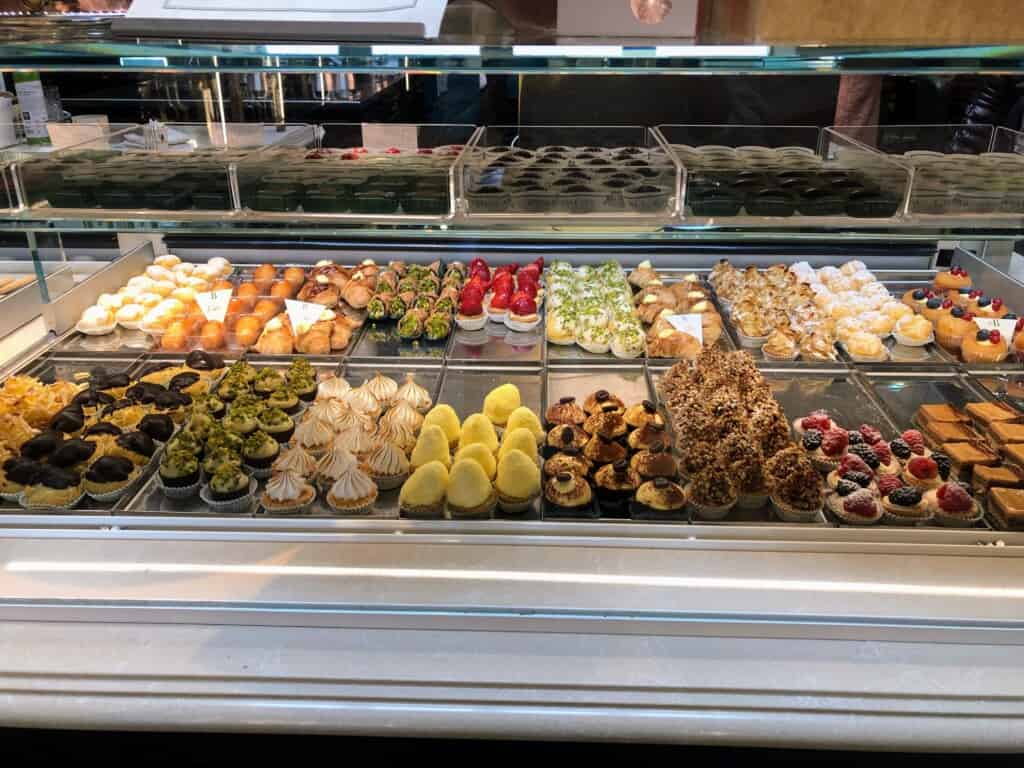
13. Sono pieno come un uovo!
This literally means “I am full as an egg” and is said when you have eaten so much that you can’t hold another crumb. Usually Italians eat it after a big meal or you will often hear little kids say it.
Sono pieno come un uovo! Non riesco a mangiare il dolce.
I am stuffed! I don’t have room for dessert.
14. Tutto fa brodo
Literally translating to “everything makes broth”, this phrase is used in Italian to mean that every penny/little bit counts when you are trying to amount to something whether it be saving for something or trying to reach a goal. It’s very commonly used and once you know what the phrase means you will notice Italians using it quite often!
Non ti rassegnare ora – tutto fa brodo!
Don’t give up now – every step makes a difference!
15. Liscio come l’olio
Literally meaning “smooth as oil”, this term is used to describe a situation that was hassle free, smooth sailing and without problems, just as a pool of oil is without ripples.
Il viaggio in aereo è andato liscio come l’olio anche se c’era tanta gente in giro!
The flight went smoothly even if there were a lot of people traveling!
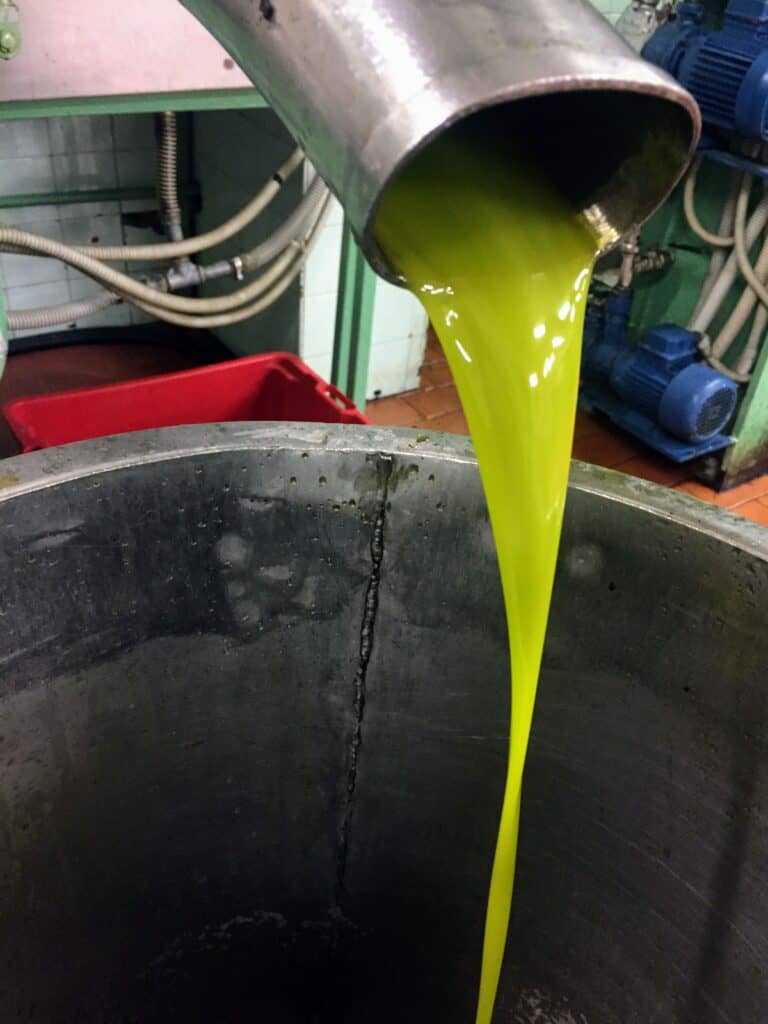
16. Buono come il pane
I personally love this phrase because it was the phrase my husband used to describe our first born child when he spoke about him to friends for the first time. Meaning, “good as bread,” it’s used to say that a person couldn’t be better (good natured, kind, etc), in this case, our newborn child.
Sebastiano è buono come il pane: dorme, mangia ed è molto bellino!
Sebastiano is good as gold: he sleeps, eats and is so cute!

17. Avere le mani di burro
Italians use this phrase to describe someone who is clumsy (like myself) and has “butter hands” or butter fingers.
Hai rotto un altro bicchiere? Hai le mani di burro!
Did you break another glass? You have butterfingers!
18. Complimenti
This is one of the hardest Italian phrases to translate into English (I think) because we don’t really have anything like it. It’s kind of like a congratulations but used to compliment someone for really anything that they should be proud of: redecorating their home, finishing a project, the taste of a pasta dish, someone’s choice in wine. Basically, anytime you want to say “good job” or “congratulations”, to show how impressed you are.
Wow, che buona questa polenta. Complimenti!
Wow, this polenta is amazing. Great job with it!
Complimenti, questo olio è buonissimo. Non sapevo che avevate le olive qui!
Good job (with making the oil), it’s so good. I didn’t know you had olive groves!
19. Ci prendiamo un caffè?
Meaning “let’s take a break,” this is an expression you will literally hear at every street corner, office, store or just in the streets in Italy. Italians love any old excuse to have a chat so what better than a quick coffee at the bar before getting on with life or going back to work.
Ci prendiamo un caffè prima?
Shall we grab a coffee before (you leave/we go on)?
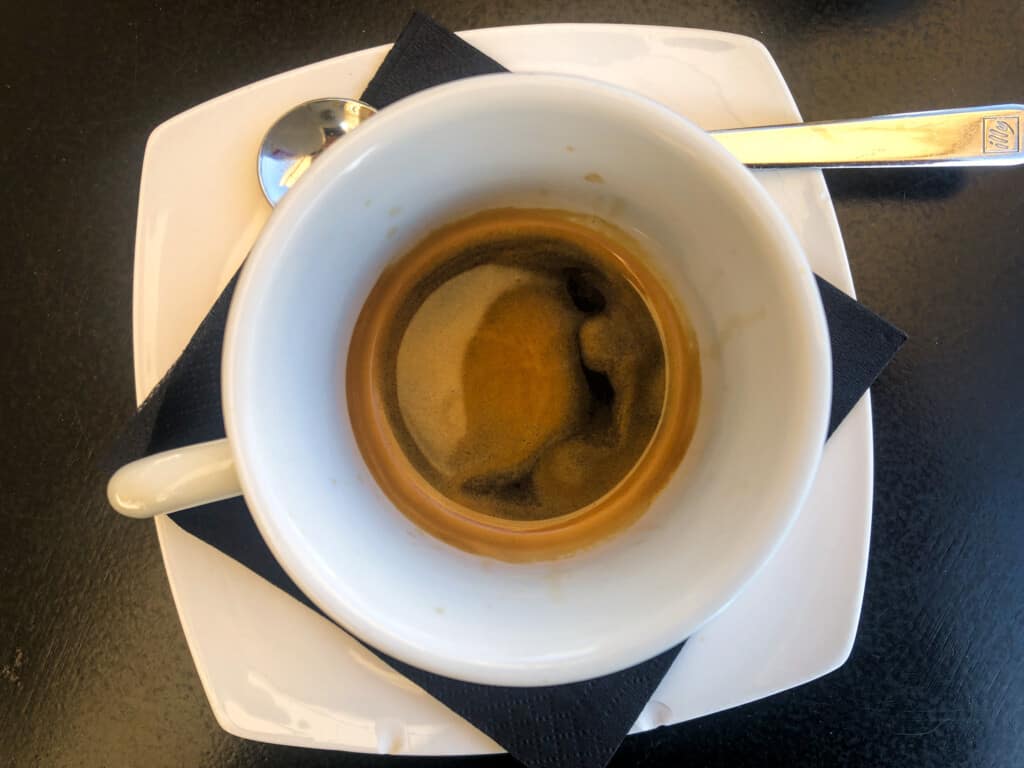
20. Bonus – Italian Food Hand Gestures
There are two specific hand gestures that Italans make to show how much they are enjoying the food they are eating or to imply their enjoyment (especially Italian grandmothers or often, you see gestures being used with small children).
- Simply push your index finger into the side of your cheek and rotate it with a big smile on your face.
- With an open palm, gently pat your chest repeatedly (this is used much less commonly but you do see it from time to time).
You may also like to read 100 Quotes About Italian Food.
